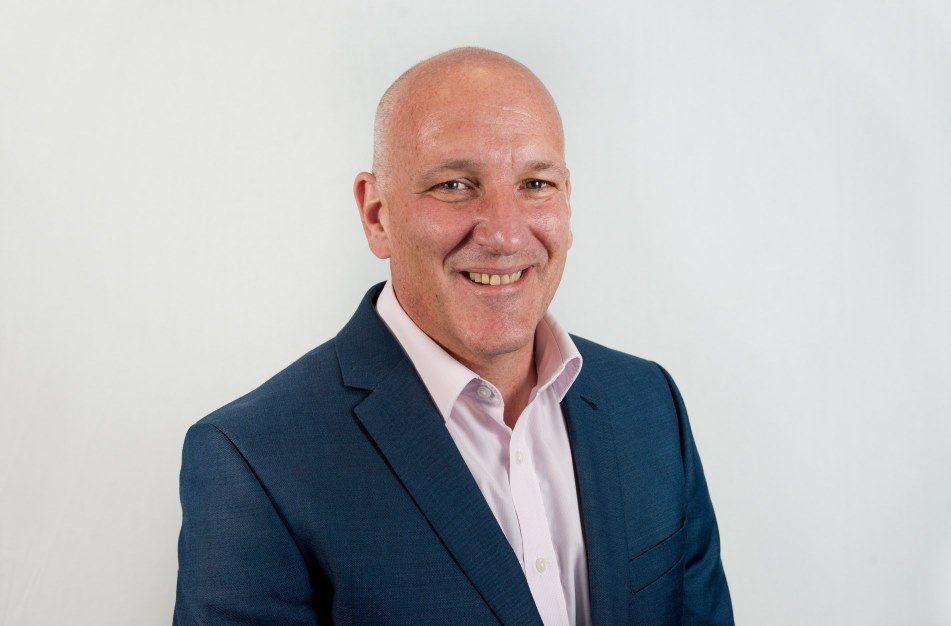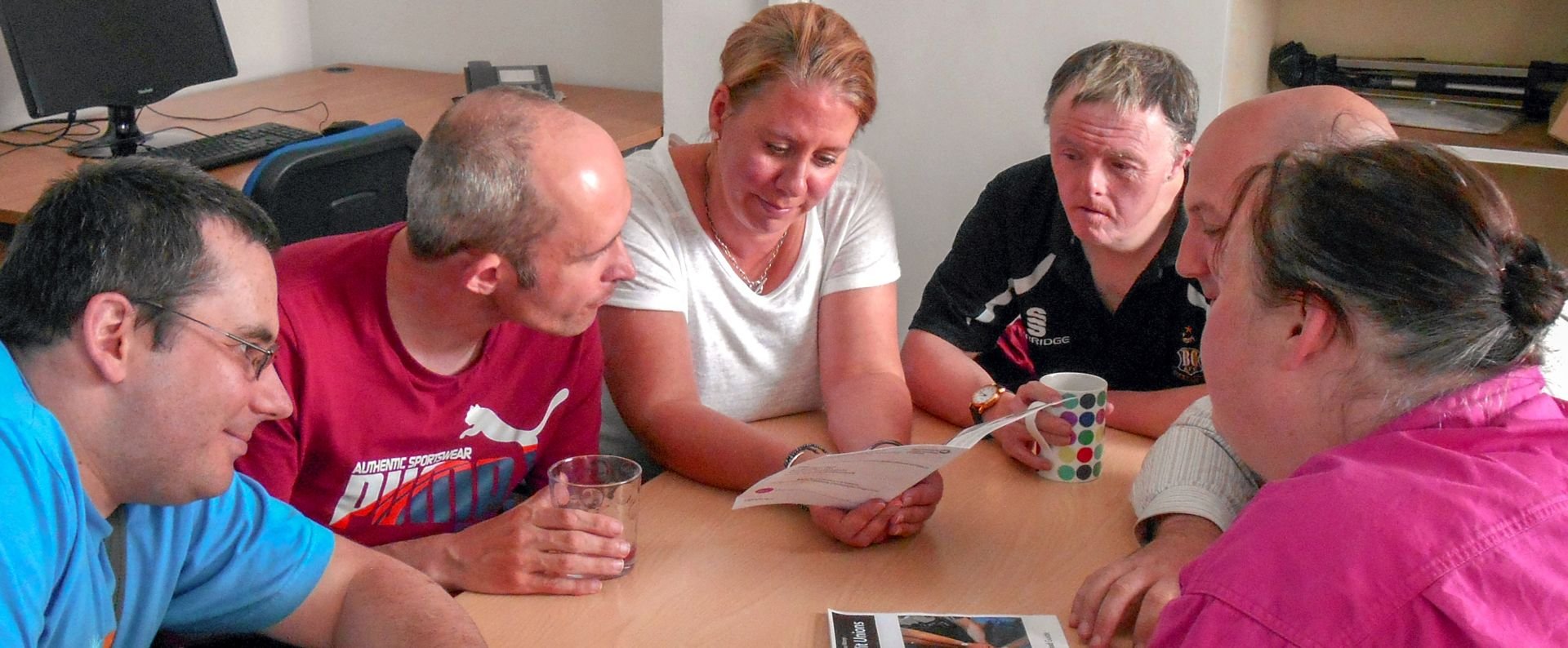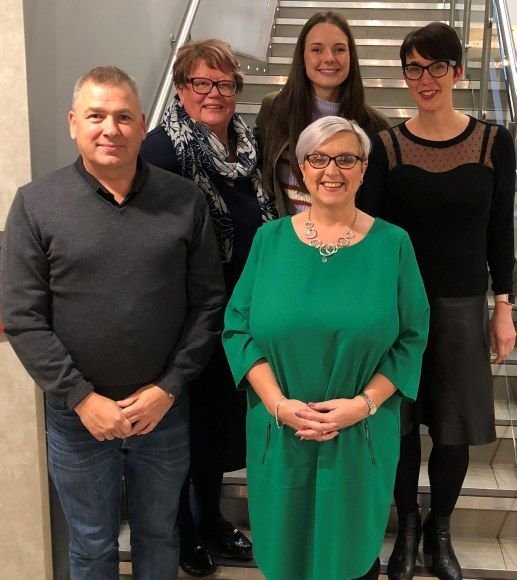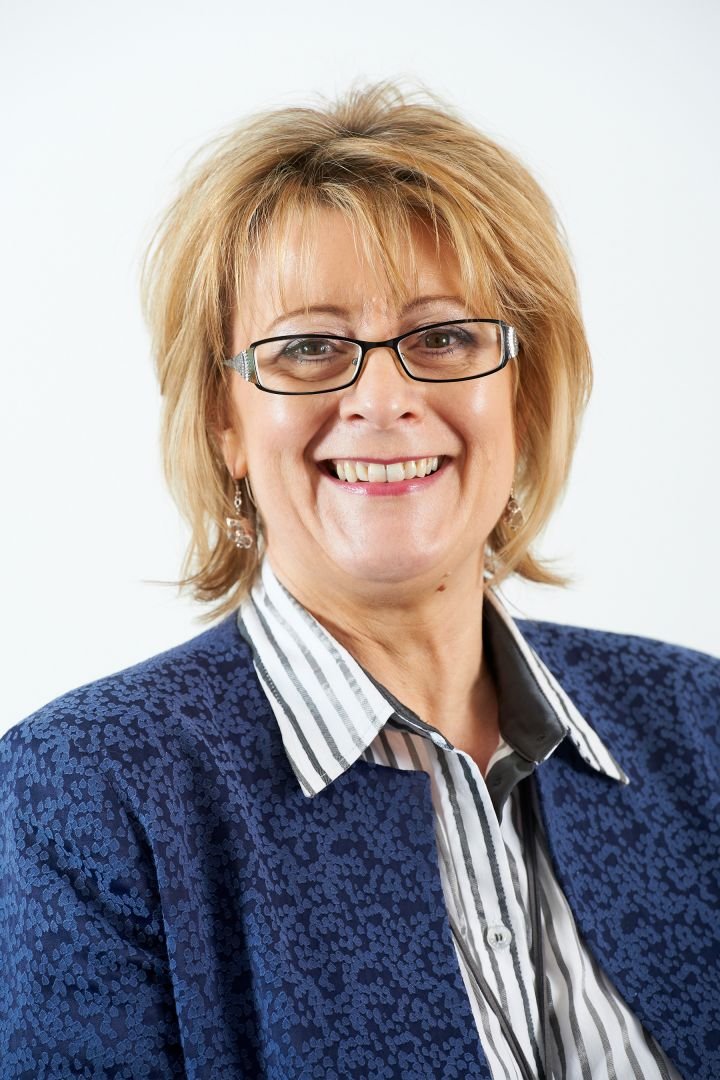Posted on: 6 December 2019
 Hello my name is Tim.
Hello my name is Tim.
I’m often struck by the challenges that face us and the dichotomy of solving wicked issues at scale versus locally-led co-created responses.
On a visit to Meanwood Urban Valley Farm, a charitable urban farm in Leeds, I met Isabel. She is a Physio Horticulturalist; a new one on me if I am honest. She runs group sessions mainly with older people that provide a combination of clinical inputs to address issues with balance and gait, at the same time as doing some expert led gardening and enjoying a cuppa and a chat. They also have a purpose supporting the farm.
Isolation and frailty are big wicked issues which we’re all dealing with and we understand the profound implications not just on NHS and social care budgets but on wonderful and valuable individuals living in our communities. I’m also minded to say that the word ‘frailty’ itself presents a wicked issue, one for another time I dare say. We know that people don’t like being called frail yet frailty assessments help health and care professionals understand the type and level of support someone will need.
 One of the principles of our West Yorkshire and Harrogate Health and Care Partnership is that of subsidiarity; understanding that a higher power or authority only takes on tasks itself that can’t be done effectively more locally. We talk of sharing good practice, addressing together issues best undertaken at scale and tackling wicked issues. Wicked issues are an outcome of a number of things but are often rooted in complexity and a product of complex systems.
One of the principles of our West Yorkshire and Harrogate Health and Care Partnership is that of subsidiarity; understanding that a higher power or authority only takes on tasks itself that can’t be done effectively more locally. We talk of sharing good practice, addressing together issues best undertaken at scale and tackling wicked issues. Wicked issues are an outcome of a number of things but are often rooted in complexity and a product of complex systems.
So my question is, “are we sure that wicked issues are best solved at scale?” or perhaps to nuance the question a little more, “are we being discriminating enough about which elements of wicked issues are addressed at the West Yorkshire and Harrogate partnership level?” This might sound at odds with the Partnership ethos to some but it’s a question that we all ask when we are balancing the needs of place, organisation and partnership.
The “Looking out for our neighbours” campaign, which our communications team along with many others have played an important part in, could be seen as an example of where the scale of West Yorkshire and Harrogate is adding value to addressing the challenge of isolation. And yet the practical and detailed response has to be very local: alive to the assets within the particular community; the local family and community networks; the various cultures and sub-cultures as well as the unique distribution of services. The campaign has provided a unifying brand but the actions are taken at a very local level with your neighbours – this just creates the conditions to help people make those connections.
This wicked issue, and I think many others, is not solved by pushing up from place to system in an assumption that scale and brain power at the centre are the answer but, rather by putting the resources with the staff, third sector and communities in which the issues manifest and allow them to develop tailored answers. There are and will be many more Isabels in our communities who are yet to emerge and through our closer working as partners we must create networks that foster local solutions to many of the wicked issues. Is Isabel an example of an imaginative way to solve a wicked issue at a local level?
This is a hard task and requires deep rooted change in organisations, like mine, and it would be much easier but less effective to let the Partnership take the responsibility.
One of the things that struck me most about the gardening physio group is they had a purpose beyond themselves – helping the urban farm develop. T E Lawrence once said that happiness is a “by-product of absorption” being immersed in a cause beyond yourself. I visit my father in a sheltered housing complex in Ilkley once a week. It’s clean and beautiful with kind staff, activities and trips, and he has friends visit but he has no purpose.
I met an older rather down at heel gentleman at a recent Big Leeds Chat who I think lived in a hostel and he told me of how he had for a time gone around Chapel Allerton each evening collecting litter (until scared off) so that he could, “contribute to where I lived and meet people”. Addressing those men’s desire for purpose and connection require local solutions.
I know that a lot of people dislike the NHS social prescribing name and to some extent the model. And yet in those places that are making good use of it, it’s become another mechanism to connect people and provide purpose with a very local feel to it. In Leeds it has seen us set up a unique three year contract worth £4.5million that’s led by a third sector organisation working in partnership with a range of other community and voluntary organisations. I recently visited Woodhouse Medical Practice where Hilary Benn MP wanted to see the impact on the ground. It was so exciting to see the passion of Dr Mohammed Sattar and hear how that practice was engaged with the community on this issue. The GP practice actively engages with its community and has employed Jess to create those community connections. They’ve already got a weekly coffee club and recently combined a bake sale with flu jab sessions. Wicked issues with local solutions.
So ‘Wicked Issues’ are not someone else’s issue they are our issue and the solutions often reside in the imagination, inventiveness, passion and desire for purpose of individuals who live and work in our local communities. As one of the national pilots from Population Health Management we’ve seen the power of providing frontline staff (GPs, social care, community nursing, third sector) with great information and a goal and watching them develop life changing and life affirming solutions for individuals and localities.
Wicked issues are not new, the challenges we’re facing grow every working day so it’s only right to look at things differently and see how we can all make an impact in our communities, in our places and at scale across the Partnership.
Have a good weekend, Tim
What else has been happening this week?
Kirklees Peer Review
The Kirklees Peer Review, which was co-ordinated by Helen Hirst, took place on 25-27 November. This was the second such review, the first was held in Wakefield late last year. Following the positive experience from both, the approach will be extended to all places.
Tony Jamieson, Director of Transformation, Yorkshire & Humber Academic Health Science Network, was part of the Peer Review Panel. Tony said: ‘It was an enlightening experience on a number of levels. I learnt about the process of organisational peer review which was taken from a model used by the Local Government Association. It was very thorough. The review team did 271 hours’ worth of interviews! I also learnt how to give organisational feedback from peers; this is very different from what I had experienced before. Most importantly I experienced how organisations could tap into a sense of community to both understand and meet people’s needs, which involved community assets; clubs, groups, schools, businesses and how to build care around and with people. I saw how quality improvement could really bring people together to tackle complex issues differently. The peer review process was designed for assurance; but the real value was to celebrate and encourage the delivery of improved health and care services in innovative ways, ‘at place’. It was inspiring.’
Working with ‘health and care champions’ – people with learning disabilities
 The learning disabilities health and care champions’ project group met this week. Sue at BTM, who is leading the work, gave an update on progress so far. This included meeting with the each of the learning disability partnerships across the patch; recruitment of health and care champions to work on prevention and early diagnosis; planned care and cancer and planning key pieces of work identified with all partners which are in line with what people with learning disabilities have told us. For example, A&E passports and producing films with people who have learning disabilities about their experience of services. The Cancer Alliance Team talked about the work they are doing with people on their experiences of cancer screening. There was also an update from Jayne Heley from NHS England and Improvement’s Personalised Care Group. One of the key workstreams of the West Yorkshire and Harrogate Health and Care Partnership Personalised Care Programme is to co-produce what good personalised care looks like for people with a learning disability. Jayne is providing support by working with Primary Care Networks and co-producing work with people with a learning disability.
The learning disabilities health and care champions’ project group met this week. Sue at BTM, who is leading the work, gave an update on progress so far. This included meeting with the each of the learning disability partnerships across the patch; recruitment of health and care champions to work on prevention and early diagnosis; planned care and cancer and planning key pieces of work identified with all partners which are in line with what people with learning disabilities have told us. For example, A&E passports and producing films with people who have learning disabilities about their experience of services. The Cancer Alliance Team talked about the work they are doing with people on their experiences of cancer screening. There was also an update from Jayne Heley from NHS England and Improvement’s Personalised Care Group. One of the key workstreams of the West Yorkshire and Harrogate Health and Care Partnership Personalised Care Programme is to co-produce what good personalised care looks like for people with a learning disability. Jayne is providing support by working with Primary Care Networks and co-producing work with people with a learning disability.
This work stream will focus on:
- Social prescribing and ‘testing’ what good looks like
- Supporting the quality and uptake of Annual Health Checks so that physical health checks for at least 75% of people aged over 14 years can be offered
- Exploring shared decision making.
Digital personalised approaches are also being explored. Jayne is supporting and implementing the commitments of the NHS Long Term Plan and considering alternative offers of support for people with Learning Disabilities.
West Yorkshire and Harrogate Clinical Forum
The Clinical Forum met on Tuesday at Bradford City Hall. The meeting is chaired by Dr Andy Withers and includes medical directors, GPs, pharmacists, allied health professionals, and lead nurses. The meeting included an update on the progress of West Yorkshire and Harrogate Healthy Hearts Project; and update on Improving Planned Care and Standardisation of Commissioning Policies Programme in particular cataract surgery and hip policies. Funding for Continual Professional Development was discussed as well as workforce. There is also a Clinical Forum Development Session today (Friday).
Joint Committee of Clinical Commissioning Groups
West Yorkshire and Harrogate Joint Committee of Clinical Commissioning Groups development session took place on Tuesday at Bradford City Hall. There was an update on the Improving Planned Care and Standardisation of Commissioning Policies programme, an update on the Joint Committee’s work plan and a presentation on further developing our strategic approach to commissioning across West Yorkshire and Harrogate.
The next meeting in public will be on Tuesday 14 January from 11am-1pm at Kirkdale Room, Junction 25 Conference Centre, Armytage Road, Brighouse, HD6 1QF.
West Yorkshire Association of Acute (WYAAT - hospitals working together)
WYAAT brings together the six acute trusts in West Yorkshire and Harrogate: Airedale NHS Foundation Trust, Bradford Teaching Hospitals NHS Foundation Trust, Calderdale and Huddersfield NHS Foundation Trust, Harrogate and District NHS Foundation Trust, Leeds Teaching Hospitals NHS Trust and Mid Yorkshire Hospitals NHS Trust. The Association delivers the ‘Hospitals Working Together’ programme which currently includes nine programmes (procurement, workforce, Scan4Safety, pharmacy, radiology, pathology, vascular, orthopaedics and ophthalmology) and five clinical service networks (dermatology, gastroenterology, urology, maxillofacial surgery and cardiology). Several initiatives are underway including
- Radiology (Yorkshire Imaging Collaborative) - Agfa Enterprise Imaging (Agfa EI) picture archiving and communications system (PACS) is now live in four WYAAT trusts.
- West Yorkshire and Harrogate Pathology Network - West Yorkshire and Harrogate ‘Getting It Right First Time’ (GIRFT) meeting on pathology will be held on 13 December, bringing together pathology staff from the whole network to explore variation in services and identify areas to standardise and improve.
- West Yorkshire Vascular Service (WYVaS) - the consultation began at the end of August. Due to the General Election, this has been extended into January 2020.
- Clinical Service Networks - WYAAT has established five clinical service networks (dermatology, gastroenterology, urology, maxillofacial surgery and cardiology) in 2019 with the aim of promoting collaboration, building relationships and enabling services to share best practice, co-ordinate innovation (for example digital or workforce models), reduce variation and improve sustainability. Networks include doctors, nurses, allied health professionals and managers from all six WYAAT trusts.
The West Yorkshire and Harrogate Partnership Allied Health Professional Council
Allied Health Professionals (AHPs) work across organisational boundaries on most clinical pathways, working in a solution and goal focused manner to support rehabilitation, recovery and independence. The NHS long term plan highlights the need to harness the potential of the AHP workforce for transforming healthcare.
In October 2019 NHS England and NHS Improvement published an interactive guide to professional development opportunities to support allied health professionals (AHPs) to lead at all levels: ‘Developing allied health professional leaders: a guide for trust boards and clinicians’ .
The guide outlines common features of the AHP leadership journey, by combining insights and evidence from trust chief executives and chief AHPs.
The target audience is those with responsibility for developing the AHP workforce, aspiring AHP leaders, organisations wanting to increase their leadership capacity, and those involved in talent management, career coaching, and appraisal conversations. As such, it will interest trust boards, commissioners and other system leaders who are keen to optimise the potential of AHPs in both leading and delivering transformation across the health, social care, and wider networks.
It builds on previous evaluative work (Leadership of allied health professionals in trusts in England: what exists and what matters? June 2018), which showed significant variation in the ways AHPs are led but also that where trusts have strategic chief AHP leadership, there are benefits to improvement activity, as well as to the visibility and influence of the AHP workforce on the trust’s priorities.
The guide identifies key behaviours and characteristics AHP leaders display (skilful communicators, strategic, and person-centred) and the significant value they add due to their professional and clinical foundations.
Although the guide was developed in relation to AHPs, the interactive nature and solution focused suggestions as to how to develop leadership can be applied across all professions. This is a useful document to use in appraisal and career development discussions.
Partnership Board meeting held in public
West Yorkshire and Harrogate Health and Care Partnership Board met for the third time in public on Tuesday (December 3) at Bradford City Hall. You can read the papers and watch the recording of the meeting here.
The Partnership Board further strengthens joint working arrangements between organisations involved, including the NHS, councils, care providers, Healthwatch, community and voluntary groups and elected members. The Board was chaired by Cllr Swift, Leader of Calderdale Council.
Due to the pre-election period, specific restrictions were in place. As a result, a different approach was taken to public questions at this meeting with questions being submitted in advance. We will answer them in writing and post our responses on the website.
Items on the agenda included health and growth and the opportunities to deliver improved health and care for the region. The Partnership’s approach to communications and engagement and the role of Healthwatch were also discussed. The important role of the communication and engagement network was emphasised and the vital connections to our six local places (Bradford district and Craven, Calderdale, Harrogate, Kirklees, Leeds and Wakefield).
The Partnership’s DRAFT Five Year Strategy was also discussed as a continuation of the conversation held at the last Board meeting in September. A public summary, easy read version and animated film has been drafted, and when agreed, and after the elections, we will produce an audio and British Sign Language version. We would like to finalise and launch the plan in the New Year, pending election outcomes.
The approach and findings of the first annual review of the Partnership Memorandum of Understanding were also discussed.
The Partnership has established a ‘Shadow Board’, to support the development of a group of aspiring leaders from across our Partnership. The group is chaired by Matt Walsh. They considered the Partnership Board papers on Monday before the meeting on Tuesday. Matt ensured their important views were shared - thank you to all those involved.
The next meeting is scheduled for Tuesday, 3 March 2020.
West Yorkshire and Harrogate Cancer Alliance
 Colleagues from Leeds Teaching Hospitals NHS Trust continue to deliver improvements for urology inpatients through a local project which forms part of the national cancer patient experience improvement collaborative.
Colleagues from Leeds Teaching Hospitals NHS Trust continue to deliver improvements for urology inpatients through a local project which forms part of the national cancer patient experience improvement collaborative.
Lead Cancer Nurse Karen Henry; Urology Ward Sister Betty Jackson; Cancer Team Business Manager Judy Turley, and prostate cancer patient Richard Seddon are taking part in the collaborative, which is run by the national NHS England Patient Experience team. WYH Cancer Alliance Communications and Engagement Lead Tracy Holmes is also part of the team and ensuring appropriate links with the Alliance Patient Experience Advisory Group, with a view to sharing the learning more widely across the Alliance in due course. Krystina Kozlowska, Head of Patient Experience at the Trust, and her team are also involved in this work.
The Leeds project focuses on inpatients on a single urology ward at St James’ Hospital – around 60% of which are cancer patients – who are asked to provide face-to-face feedback on their care and treatment through one to one interviews. The information is collated and analysed rapidly to provide meaningful feedback to staff verbally on the day. Within two days, a poster is displayed on the ward, highlighting compliments, areas for improvement and highlighting ‘star’ staff members. Early evidence from Leeds, and similar work elsewhere, shows marked experience in patient experience as a result. The project is currently looking at the issue of help and support for patients with protected mealtimes, as feedback has highlighted that improvements could be achieved in this area.
This week, the team attended the Collaborative’s 60-day milestone event, key themes of which were sustainability of projects and the importance of communications in achieving influence and spread.
Claire Marshall of the national Patient Experience team is visiting each of the projects involved in the collaborative to meet with local colleagues, including the Executive Sponsor for each project; to talk with staff delivering the improvements on the frontline, and to discuss next steps. A date has yet to be fixed for the Leeds visit, but it is expected to be in January. Watch this space for further updates.
Improving Population Health Board
Improving health and wellbeing is at the very heart of the partnership and we are working with people, communities and organisations to seize new opportunities for improving health. We are working with partners to reduce health inequalities due to social, geographical or other barriers and by addressing some of the preventable differences that contribute to inequality; we are tackling the unjust differences in life expectancy which exist across our area. We know that hospitals and healthcare professionals are not alone in keeping people well.
Where people live, their homes, the community environment, family support and the life choices they can make are vital. The Programme Board meets today, in Leeds. Co-chaired by Robin Tuddenham, CEO for Calderdale Council and Dr James Thomas, Chair of NHS Airedale, Wharfedale and Craven Clinical Commissioning Group. The agenda includes mental health prevention concordat, programme updates, prioritisation and potential for a suicide reduction campaign.
NHS Northern Gambling Service Clinical Engagement
Have you heard of the NHS Northern Gambling Service (NGS)? If not, chances are neither have your clinical or front line colleagues.
Gambling addiction has been described as a public health crisis and new services, like ours, are being set up across the country as part of the NHS Long Term Plan.
Loads of health and care professionals can refer into the NHS NGS, including GPs but also local council services, NHS trusts, national and local charities, Citizens’ Advice, the criminal justice system, debt agencies, substance misuse services and homeless agencies.
The NHS NGS’ clinical lead, Consultant Psychologist Matthew Gaskell, is embarking on a programme of clinical engagement with GPs and other potential referring agencies and professionals.
If you’d like Matt to come and present at an appropriate forum, training event or time out that you are part of, then please register your interest with us. This could be anything from a short ten minute introduction to the service, to a full blown presentation with Q&A. Just let us know what works for you.
To register your interest, please get in touch with Paige Rufus, Team Secretary at the NHS Northern Gambling Service, on:
- Tel: 07971 583637
- Email: paige.rufus@nhs.net.
- Find out more about the Northern Gambling Service at http://
bit.ly/ .NHS-NGS
What's happening next week?
 Helen Hirst, Chief Officer for the three CCGs in the Bradford District and Craven – Airedale, Wharfedale and Craven, Bradford City and Bradford Districts, is attending the Kings Fund on Monday for a table discussion for integrated care system leads on Community of Practice on Monday 9 December. Helen is also the Partnership CEO Lead for Organisational Development – as well as the Partnership’s Commissioning Lead for Mental Health.
Helen Hirst, Chief Officer for the three CCGs in the Bradford District and Craven – Airedale, Wharfedale and Craven, Bradford City and Bradford Districts, is attending the Kings Fund on Monday for a table discussion for integrated care system leads on Community of Practice on Monday 9 December. Helen is also the Partnership CEO Lead for Organisational Development – as well as the Partnership’s Commissioning Lead for Mental Health.- Local place planners (Bradford district and Craven; Calderdale, Harrogate, Kirklees, Leeds and Wakefield) meet on Tuesday.
- The Primary and Community Care Workstream Board meets on Tuesday.
- The Harnessing the Power of Communities Project meets on Tuesday.
- On Wednesday the Communication and Engagement Network meet in Halifax.
- West Yorkshire and Harrogate Programme Leads meet on Thursday.
- The Area Partnership Group (unions) meets with colleagues from the Partnership on Friday.

